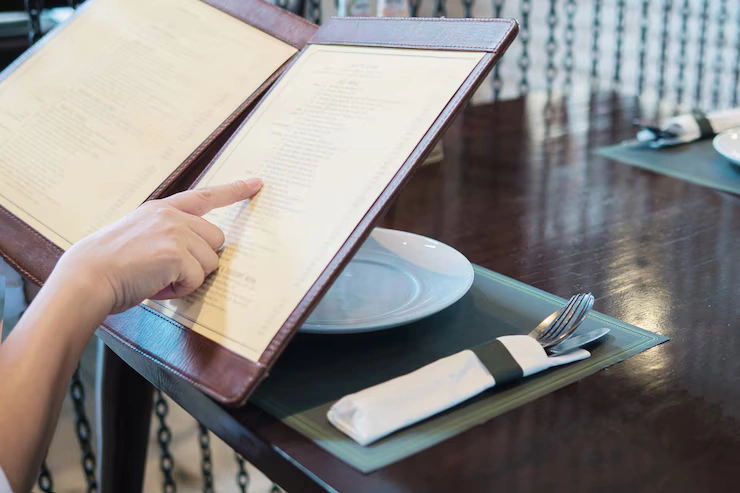Introduction
Restaurant insurance is essential for protecting your business from the wide range of risks that come with running a restaurant. From slip-and-fall accidents to fire and property damage, having the right insurance on a restaurant ensures that owners are financially protected when unexpected issues arise.
A solid restaurant liability insurance policy typically includes coverage for general liability, property damage, workers’ compensation, and even business interruption. Choosing the best insurance for restaurants helps owners operate with peace of mind, knowing their investment is safeguarded.
This article explores the core elements of a standard restaurant insurance policy, breaking down what each type of coverage offers and why it’s critical to the smooth and secure operation of your restaurant.

Why Is Restaurant Insurance Necessary?
Running a restaurant involves managing multiple operations, including food preparation, customer service, and property maintenance. Despite best efforts, accidents can still happen. Whether it’s a slip-and-fall injury, a kitchen fire, or a foodborne illness, the financial burden of these incidents can quickly add up.
Restaurant insurance helps mitigate these risks by covering the associated costs. Without the right insurance, restaurant owners could face significant out-of-pocket expenses from lawsuits, property damage, or business interruptions.
Insurance coverage not only helps protect the financial stability of the business but also ensures that restaurant owners can focus on their operations without worrying about unforeseen events.
Types of Coverage Included in a Restaurant Insurance Policy
A restaurant insurance policy typically includes a mix of coverages designed to protect the physical property, employees, and operations of the business.
Below are the most common types of coverage found in such policies:
- Property Insurance: Protects the physical building and its contents, including equipment, furniture, and inventory.
- Liability Insurance: Covers damages resulting from accidents, injuries, or property damage that occur on the restaurant premises.
- Business Interruption Insurance: Provides financial support if the business is temporarily closed due to a covered incident, such as a fire.
- Workers’ Compensation Insurance: Covers medical expenses and lost wages for employees who get injured while working.
- Food Contamination and Product Liability Insurance: Protects against claims related to foodborne illnesses and other product-related issues.
Each of these coverages plays a vital role in safeguarding a restaurant from a wide range of potential risks.
Property Insurance for Restaurants
Property insurance is one of the foundational components of a restaurant insurance policy. It covers the physical building, equipment, and other assets necessary to run a restaurant. If a fire, natural disaster, or vandalism damages the property, property insurance will help cover the cost of repairs or replacement.
Restaurant owners should ensure that their Restaurant Insurance Policy covers the following:
- Building and Structure: Coverage for the physical structure of the restaurant, including walls, roofs, and windows.
- Contents and Equipment: Protection for essential equipment such as ovens, refrigerators, and furniture.
- Inventory: Coverage for food and beverage stock in case of damage or spoilage.
Having property insurance is crucial for minimizing the financial impact of damage to a restaurant’s physical assets.
Liability Insurance for Restaurants
Liability insurance is essential for covering legal costs and damages in the event of accidents that happen on the restaurant’s premises.
This coverage includes:
- General Liability: Protects against accidents like slip-and-fall incidents or property damage Caused by the restaurant’s operations.
- Product Liability: Covers legal claims arising from foodborne illnesses or allergic reactions caused by ingredients in the food served.
In addition, if a customer sues the restaurant for injury or damage, liability insurance will cover the legal fees and settlement costs, ensuring that the restaurant doesn’t bear the full financial burden.

Business Interruption Insurance
Business interruption insurance is designed to protect restaurant owners if they are forced to close temporarily due to a covered event, such as a fire or a natural disaster. This type of insurance helps replace lost income during the closure period and covers ongoing expenses like rent, utilities, and payroll.
Having business interruption coverage ensures that even during difficult times, the restaurant can continue to meet its financial obligations and recover quickly.
Workers’ Compensation Insurance
Workers’ compensation insurance is mandatory in most states and provides coverage for employees who are injured while working. This includes medical expenses, rehabilitation costs, and lost wages due to work-related injuries.
Since restaurants are fast-paced environments with a higher risk of injury, workers’ compensation is essential for protecting both employees and the business. For instance, if an employee injures themselves while handling kitchen equipment or slips on a wet floor, workers’ compensation will cover the costs, preventing the restaurant from being liable for the employee’s medical expenses.
Food Contamination and Product Liability Insurance
Restaurants are responsible for ensuring the safety of the food they serve. Food contamination and product liability insurance cover claims that arise from foodborne illnesses, allergic reactions, or contamination.
For example, if a customer suffers from food poisoning due to improperly stored food or contaminated ingredients, this insurance can cover the resulting medical costs and potential lawsuits.
This coverage also protects the restaurant in case of claims arising from the sale of defective products, such as food packaging or utensils, which can lead to customer harm.
Additional Coverage Options for Restaurants
Apart from the essential coverages listed above, restaurant owners can consider additional types of insurance based on their specific needs.
These may include:
- Liquor Liability Insurance: Covers alcohol-related incidents, such as drunk driving accidents or injuries caused by intoxicated customers.
- Cyber Liability Insurance: Protects against data breaches or cyberattacks that may compromise customer information.
- Equipment Breakdown Insurance: Covers the cost of repairing or replacing essential equipment like ovens or refrigerators that break down unexpectedly.
Restaurant owners can discuss their needs with an insurance agent to determine which additional coverage is necessary.

Types of Restaurant Insurance and Their Coverage
| Type of Coverage | Description |
| Property Insurance | Covers the building, equipment, and inventory in case of damage or loss. |
| Liability Insurance | Covers legal costs for accidents, injuries, or product-related issues. |
| Business Interruption Insurance | Protects against loss of income if the restaurant must temporarily close. |
| Workers’ Compensation Insurance | Covers medical expenses and lost wages for employees injured at work. |
Additional Coverage Options for Restaurants
| Type of Coverage | Description |
| Liquor Liability Insurance | Covers incidents caused by alcohol consumption on the premises. |
| Cyber Liability Insurance | Protects against risks of data breaches and cyberattacks. |
| Equipment Breakdown Insurance | Covers the cost of repairing or replacing damaged or broken kitchen equipment. |
Conclusion
A typical restaurant insurance policy provides essential protection for restaurant owners, covering risks associated with property damage, liability, employee injuries, and more. It allows owners to focus on running their business while having peace of mind knowing they are protected in case of unexpected incidents.
By understanding the different types of coverage available and tailoring the Restaurant Insurance Policy to their needs, restaurant owners can ensure that their business is financially secure and prepared for whatever challenges may come their way.


1 Comment
Pingback: Restaurant Insurance Quote: Get Your 2025 Estimate